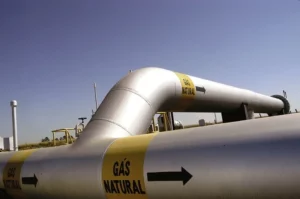Argentina’s government has raised gas prices significantly to cut its fiscal deficit.
This move aims to align prices with inflation and currency devaluation, sparking concern among businesses about potential price hikes.
The Energy Secretary disclosed that, before winter’s peak demand, residential gas prices would jump 350% to 460%.
This change is part of a plan to show an inflation decrease in early governance. Hence, wholesale gas prices will soar up to 540% for the winter, from $0.70 to $4.5 per million BTU.
Costs for gas companies, known as EPST, had already risen by March. These increases will further boost production’s fixed costs.

Bill impacts will differ widely due to factors like income levels, consumption patterns, and subsidies for colder areas. These regions face high demand during low temperatures.
Under a subsidy system from President Fernández’s era (2019–2023), bills vary by household based on usage and income.
Subsidies are categorized into three levels: high, medium, and low income.
A gas bill includes costs for production (40%), transport (12%), distribution (24%), and taxes (24%).
Fixed costs, unrelated to usage and meant for network maintenance, have risen between 175% and 1,000%, varying by user type.
Monthly Gas Price Adjustments
Gas prices will now adjust monthly, reflecting wholesale inflation, wage changes, and construction costs. This adjustment aims to keep tariffs in line with the dollar’s value.
The need for price adjustments comes from a historical gap between costs and energy prices, rooted in a 2002 freeze during a major crisis.
Though prices have occasionally adjusted, they haven’t kept up with operating costs, causing fiscal issues.
Experts foresee that fixed cost hikes, inflationary adjustments, and winter demand will substantially increase bills, especially for those without subsidies.
This rise could strain both households and small businesses, risking jobs and worsening economic conditions due to inflation and sales drops.

